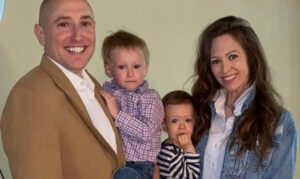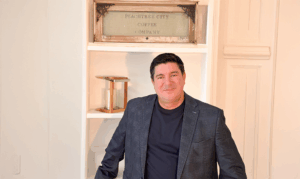The events in Charlottesville were despicable. How is such hate generated?
However, even more telling to me is the general response from the political establishment and the press. So many have raced to be “politically correct.” Are they truly distraught or is it just rhetoric that seems politically expedient to them?
Many seem to want to promote some political action that is really meaningless. Tearing down monuments and changing the names of military installations does not change history. George Santayana, in his “Reason in Common Sense, The Life of Reason,” wrote, “Those who cannot remember the past are condemned to repeat it.” Should we try to rewrite history? That would not change what really happened. Where does it stop?
Tearing down monuments and changing the names of military installations does not stop hate. It fact, such activities most probably would have the opposite effect in radical fringes.
As a child, I was taught that, “Sticks and stones may break my bones, but words will never hurt me.” That is truth. But, does truth matter? We must be politically correct, never mind the First Amendment. That said, the situation in Charlottesville was violence of deplorable magnitude. Certainly more than sticks and stones. There is no room for such hate in our society if we are to prevail as a free society. But consider, where does the hate originate?
Something generates hate. What? Some behaviors on the part of different elements of society are viewed as inappropriate by other elements of society and people are offended. Is that reason for hurting people? Of course not. The First Amendment provides for everyone to have their say, right or wrong. And, right or wrong is often like beauty, in the mind of the beholder. Where is civility?
Too often, those involved in such violence are among the poorly educated, lower socio-economic strata. Look at the photos of these people. They are not mainstream America. Does that make me a bigot because I think that? Perhaps. However true it is, it is a stereotype without a doubt. Can we reason with those people? Probably not. So, what do we do? We can pray for them, but a swift kick in the posterior might help too.
We can hold hands and sing Kumbaya until sundown, but that will change nothing. Such people do not want to listen to reason or talk of love and forgiveness. They are like other violent radical groups, e.g., radical Muslims (now I’m a bigot for certain). They are committed to their radical ideals.
We can respectfully ask what generated those ideas and the opinions that led to such hate and violence and then listen, but I doubt we would receive a rational response. We can try to love them (that’s too much to ask of me), but they are not going to love us, no matter what. There seems no cure for stupid or for hate. We must contain it because we can’t seem to overcome it.
If we are to survive as a free society, and I have doubts, we must learn to accommodate differing views without violence and with an effort to understand each other without demanding that, “You must do it my way!”
Looking up, as I watched and watched others watching the eclipse, it occurred to me that the greatest thing is not the phenomenon itself but that, for a few brief moments, people were united with a common goal. There was no hate, no malice, no greed, no nefarious agenda — just ordinary people being together enjoying God’s show in the sky. They were sharing their glasses, their time, and having polite, civil conversation and generally enjoying the process.
Why can’t we do that with other things?
Ben Backus
Peachtree City, Ga.









Leave a Comment
You must be logged in to post a comment.